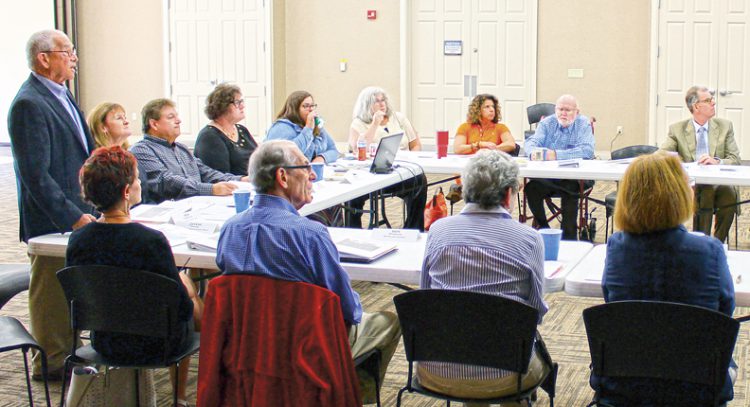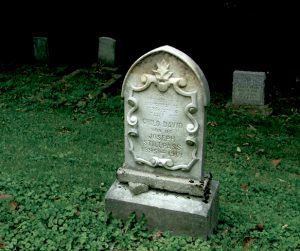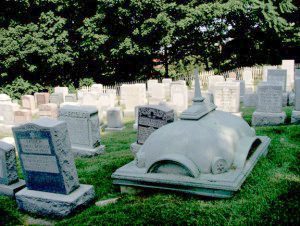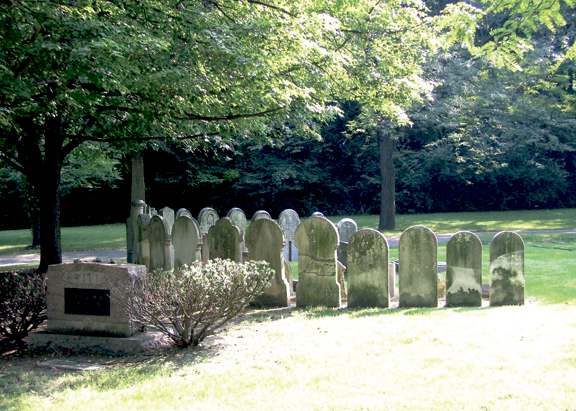3 congregations hope to combine cemetery operations

Story and Photos By Marshall Weiss, The Observer
Following a year of due diligence, the boards of Beth Abraham Synagogue, Beth Jacob Congregation, and Temple Israel agreed in principle in December to move forward with a project that would combine their cemeteries into a single non-profit entity, separate from the congregations’ operating budgets.
Before any formal consolidation will take place, an endowment to operate the entity in perpetuity would need to be fully funded, according to the congregations’ agreement.
“The endowment will be such and the operation will be such that all three cemeteries will be totally taken care of in perpetuity in a Jewish way,” said Dr. Robert Goldenberg, who initially chaired the project’s steering committee and now co-chairs it with Bruce Feldman.
“It’s the right time and the right thing to do for our Jewish community families and their loved ones,” Feldman said. “By putting the cemeteries together as a community asset, we’ll save money on the overall cemetery operations and ensure perpetual care. It’s important to note that each synagogue will maintain control over its halachic (Jewish legal) requirements.”
Goldenberg said the committee hasn’t yet determined the minimum funding required in the cemetery endowment to move forward with the project.
“Each of the three cemeteries runs a deficit each year,” Goldenberg said, “and it’s about the same, about $50,000 a year. What would make this work so easily is that each of the three cemeteries is similar in size, in number of gravesites used and not used, and in the costs of the burials the congregations charge.”
The idea to combine the cemeteries came from Bart Weprin when he was Temple Israel’s president.

“What you have is a decaying infrastructure in the cemeteries and changing demographics,” Weprin said. “We found out the average age of members in these three synagogues is 70 years old. We have an obligation to our families that are buried in our cemeteries to do this for the future. We can bring in professional management, take the cemetery expense and remove it from the congregational budget, remove the operational problems and emotional problems, and address the moral imperatives.”
The steering committee received seed funding to explore the project from the Levin Family Foundation and the Jewish Federation of Greater Dayton.
With a consultant from Cincinnati’s Spring Grove Cemetery, the committee studied the Jewish Cemeteries of Greater Cincinnati as a model; the non-profit organization formed in 2008 and operates 24 of 27 Jewish cemeteries in the Cincinnati area in eight locations.
Goldenberg said Dayton’s steering committee will now work with retired Cincinnati lawyer Ed Marks on the project.
“He set up the Jewish Cemeteries of Greater Cincinnati,” Goldenberg said.
“Since I heard about our neighbors in Cincinnati pooling their talents and resources to combine the management of the Cincinnati Jewish cemeteries, I have been inspired by that concept,” said Dr. Adam Waldman, who represents Beth Jacob Congregation on the steering committee.
According to Beth Jacob Vice President Lisa Harlan, the congregation is months away from establishing its cemetery as an entity separate from Beth Jacob, a process it began years before the community-wide steering committee’s efforts.

“Our board believes it is in our best interest for us to be in this conversation (as part of the community-wide steering committee) in the interest of long-term perpetual care,” Harlan said.
Temple Israel’s Riverview Cemetery and Beth Abraham Cemetery are adjacent, on West Schantz Avenue south of Dayton; Beth Jacob Cemetery is located at 4001 Old Troy Pike in Dayton.
For now, Goldenberg said members of the steering committee are funding its monthly legal expenses themselves. “We’re working together in agreement.”
Members of the steering committee along with Feldman, Goldenberg, Weprin, and Waldman are Joel Frydman and Don Weckstein. Feldman represents Beth Abraham, Weprin represents Temple Israel, Frydman represents the Jewish Foundation of Greater Dayton, and Weckstein represents Temple Beth Or.
Temple Beth Or, Dayton’s fourth and newest Jewish congregation, has its own section of more than 100 plots at David’s Cemetery in Kettering.
“Cemeteries don’t last unless you put money, time, and effort into them,” Weprin said. ”We can’t forget the people who are in those graves. And if we wake up 10 years from now and don’t do anything, we’ll have problems.”

To read the complete February Dayton Jewish Observer, click here.

